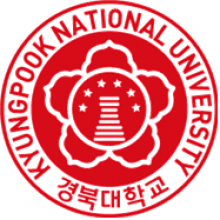About TU Wien
Founded in 1815, Vienna University of Technology (TU Wien) was known original as the k. k. Polytechnic Institute with a focus on scientific research and teaching. Five faculties were created in 1865 before it was renamed the Technical University in 1872. Over a hundred years later, in 1975, it adopted the name Technical University, which it goes by today. Under the 2002 University Act, TU Wien gained full legal capacity.
Today, it comprises eight faculties. These are Architecture and Planning, Chemistry, Civil Engineering, Computer Sciences, Electrical Engineering and Information Technology, Mathematics and Geoinformation, Mechanical and Industrial Engineering, and Physics.
At TU Wien, students are encouraged to engage with the university’s research projects, many of which are incorporated into its teaching.
With close to 5,000 staff across the entire university, ranging from professors and lecturers to scientific and non-scientific staff, TU Wien caters for around 30,000 undergraduate and postgraduate students. The first doctorates at the university were awarded in 1902.
The university library, established the same year as the university, was completed in 1987. Organised across six floors it includes open access areas, reading rooms and 700 individual study desks. The building is decorated with numerous owl sculptures, designed by the Swiss artist and architect Bruno Weber, and a lion fountain on the ground floor created by the sculptor Gero Schwanberg
TU Wien’s research priorities include Computational Science and Engineering, Quantum Physics and Quantum Technologies, Materials and Matter, Information and Communication Technology, and Environment.
Its alumni include mathematician and physicist Christian Doppler (Doppler effect), architect Otto Wagner, Nobel Prizewinner for Chemistry Richard Zsigmondy, composers Josef and Johann Strauß, and the first Austrian astronaut Franz Viehböck.
Explore these featured universities
Explore rankings data for TU Wien
Compare universities on their key stats
Key statistics
- 19.0No. of students per staff(1)
- 31%Percentage of International Students(1)
- 32 : 68Student Ratio of Females to Males(1)
- 51%Proportion of ISR Publication(1)
- 11,373Number of FTE Students(1)
Subjects taught at TU Wien
Engineering & technology
- General Engineering
- Chemical Engineering
- Civil Engineering
- Electrical & Electronic Engineering
Physical sciences
- Chemistry
- Physics & Astronomy
- Geology, Environmental, Earth & Marine Sciences
Arts & humanities
- Architecture










